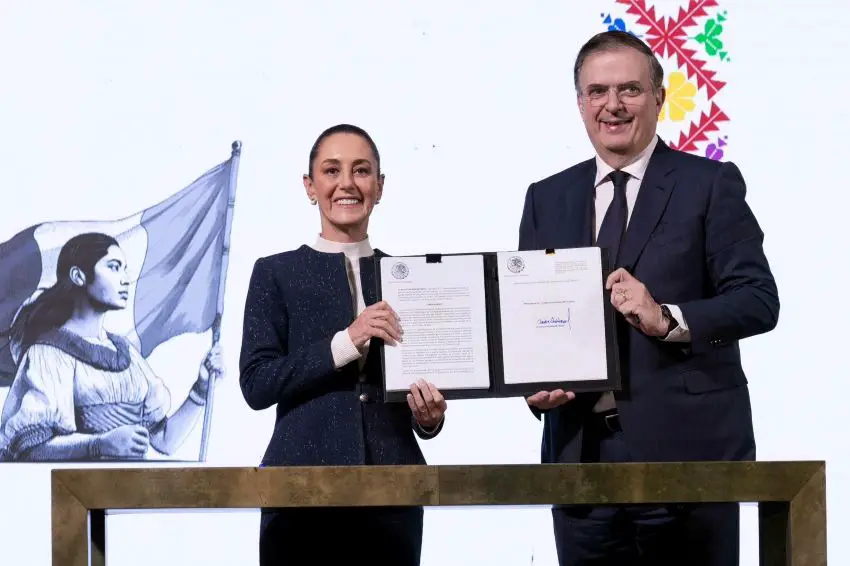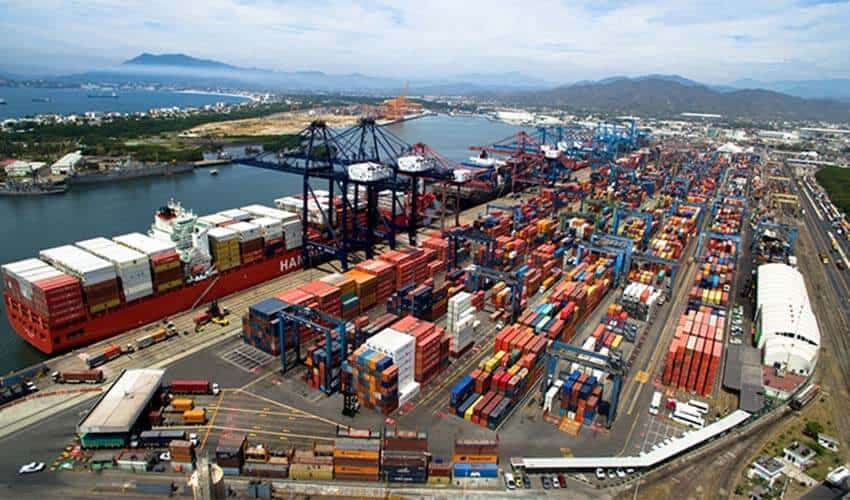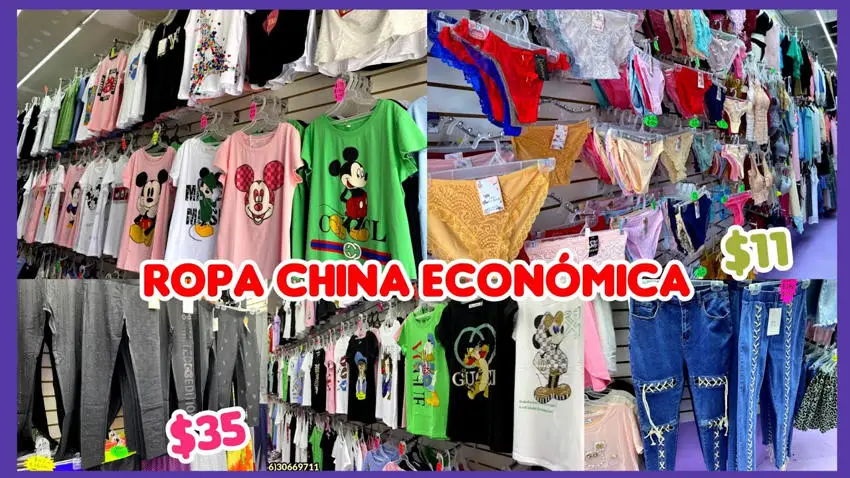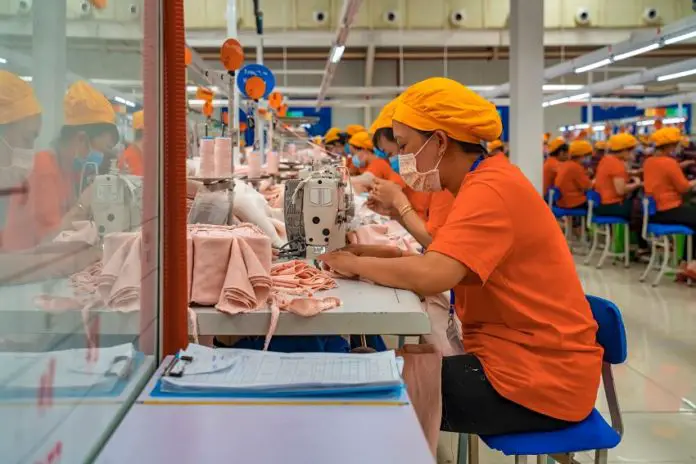Economy Minister Marcelo Ebrard announced Thursday that Mexico will temporarily impose a 35% tariff on more than 100 finished textile imports in order to protect the Mexican textile/clothing industry.
Speaking at President Claudia Sheinbaum’s morning press conference, Ebrard said that a 35% tariff that already applies to some textile imports will apply to 138 additional “made” or finished textile products such as clothes.

The tariff, which will be imposed on products imported from countries with which Mexico doesn’t have a free trade agreement, appears to be mainly targeted at cheap Chinese clothing.
Ebrard said that the 35% tariff on 138 additional textile products “complements” the list of textile products on which a 35% tariff was imposed in April. In late April, Mexico implemented 5–50% tariffs on more than 500 goods imported from countries with which it doesn’t have a free trade agreement.
Ebrard also announced on Thursday that a 15% tariff will apply to 17 categories of unfinished “textile goods.”
He said that the 15% tariff would also “complement” tariffs that were imposed earlier this year. In addition, Ebard said that Mexico was “increasing the list of [textile] products that can’t be imported” to Mexico. He said that some companies are importing certain textiles as inputs for final goods to be exported, but are in fact selling them as is in Mexico and consequently evading the payment of taxes.
“In summary, we’re increasing to 35% the tariff on finished [textile] products … that [are currently sold at] unbelievably low prices. We’re increasing to 15% [tariffs on] the importation of [unfinished] textile goods to protect our national industry. And we’re closing this door that is being abused,” he said.
Ebrard said that Sheinbaum “instructed” the Economy Ministry to impose the new tariffs.

The new duties will take effect the day after the tariff decree — which was signed by Sheinbaum and Ebrard — is published in the government’s official gazette. That could happen as soon as Thursday evening.
The temporary tariffs will remain in effect until April 22, 2026, according to Ebrard.
The announcement of the new tariffs comes as Mexico seeks to reduce its reliance on imports from China and other Asian countries and bolster domestic production. Mexico’s trade and investment relationship with China has been questioned and/or criticized in both the United States and Canada, and could be a point of contention at the review of the USMCA trade pact in 2026.
Federal authorities have recently carried out raids on stores in Mexico City and Sonora selling counterfeit and/or illegally imported Chinese goods.
It remains to be seen whether Mexico will increase tariffs on other imports from countries with which it doesn’t have a free trade agreement. One potential target could be Chinese electric vehicles, which have coming into Mexico in large numbers, raising concerns in the United States and Canada.
Ebrard: Without tariffs, textile industry jobs will be lost
Ebrard said that Mexico’s textile industry is “very important” as it employs some 400,000 people. He highlighted that México state, Puebla, Hidalgo, Coahuila and Guanajuato are Mexico’s largest textile producers.
Ebrard said that employment in the textile industry reached its “lowest level” in 2024 after 79,000 jobs were lost “in recent years.”
“That’s why measures were taken in April,” he said, referring to the imposition of tariffs on some textile products.
Ebrard said that 75,000 additional jobs will be lost “if we don’t close the door and don’t increase tariffs.”

It wasn’t entirely clear, but it appeared that the economy minister was saying that that number of jobs would be lost in México state alone. That state, which borders Mexico City, is the country’s top textiles producer.
Ebrard also said that “the gross domestic product of the textile industry” in Mexico “has declined at an annual rate of 4.8%,” but didn’t specify the period he was referring to.
“In other words, we’re losing approximately 1.229 billion pesos (US $60.5 million) every year,” he said.
Ebrard highlighted that since 2019, Mexico has been importing more textiles and clothing than it exports.
With the protectionist plan announced on Thursday morning, “we’re going to promote the development of our national industry,” the economy minister said.
“… A strategic objective of the [government’s] shared prosperity [plan] is to increase the national content in everything we consume. The more Mexican content there is, the more jobs there will be in Mexico,” Ebrard said.
The tariffs and ban on the import of certain textile products will “avoid practices that affect employment and the competitiveness of our economy, [and] avoid technical contraband,” he said.
“What is ‘technical contraband’? Lying to the authorities, … saying ‘this is an intermediate product, I need this piece to finish what is going to be sold,’ and it isn’t true,” Ebrard said, noting that the products are often sold in markets as final goods.
“… In summary, these are measures to protect one of the most important industries in our country in terms of jobs. …. If these measures aren’t taken to avoid abuses or dumping prices, … which are extremely low, national industry will be at a disadvantage,” he said.
Mexico News Daily
